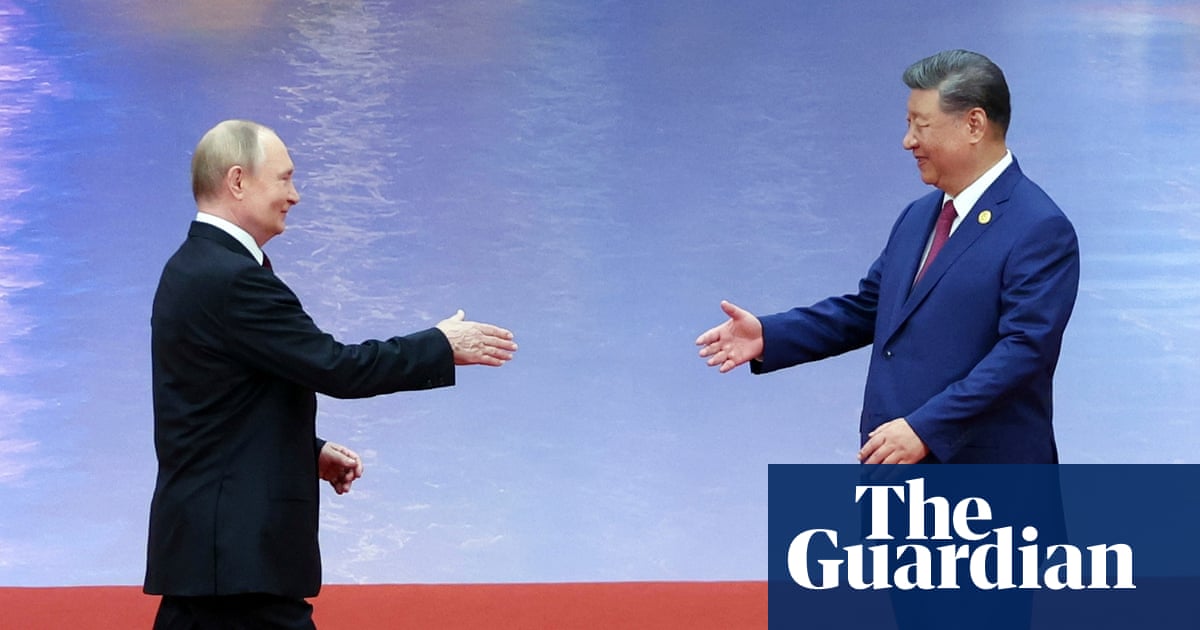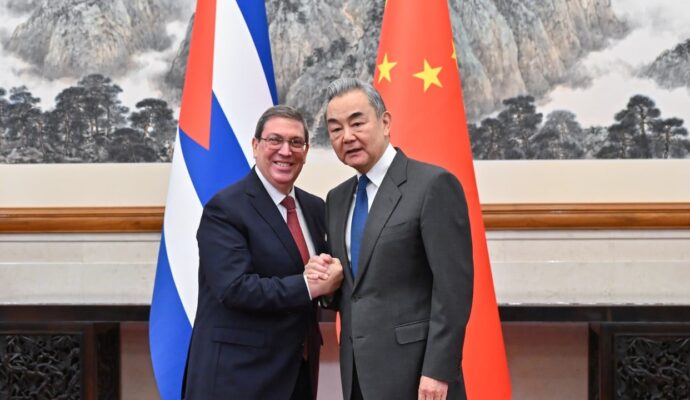
The leaders of more than two dozen nations arrived in China on Sunday for a showpiece summit that seeks to challenge US-led, western-dominated blocs.
Xi Jinping personally welcomed several leaders, including the Indian prime minister, Narendra Modi, and the Turkish president, Recep Tayyip Erdoğan. Xi is also expected to hold talks with Vladimir Putin, with whom he is closely allied under what they have termed a “limitless” partnership.
The bilateral meetings are being held on the sidelines of the Shanghai Cooperation Organisation (SCO) summit in Tianjin. The SCO is a 10-member block of Eurasian nations, and the summit is also being attended by the leaders of 16 observer or “dialogue partner” nations.
Putin and several other attenders are expected to stay on for a military parade in Beijing on Wednesday to mark the 80th anniversary of the end of the second world war, which China refers to as the war of resistance against Japanese aggression. The North Korean leader, Kim Jong-un, is also expected to attend.
The summit is Modi’s first visit to China in seven years, and comes amid efforts by China and India to rebuild trade ties and resolve long-running Himalayan border disputes.
“We are committed to progressing our relations based on mutual respect, trust and sensitivities,” Modi said after meeting Xi.
The Tianjin summit is the largest held by the bloc since it was formed in 2001. The SCO is a key part of Beijing’s push for stronger multilateral alternatives to western or US-led blocs such as Nato.
Putin, who arrived with an entourage of senior politicians and business representatives, told the Chinese state news agency Xinhua on Saturday that the SCO meeting would “consolidate solidarity” among the Eurasian nations and “help shape a fairer multipolar world order”.
The goal appears to have been helped by the upheaval brought by Donald Trump’s tariff regime and other foreign policy moves. Modi and Xi’s meeting took place five days after Washington imposed punishing 50% tariffs on Indian goods due to Delhi’s purchases of Russian oil.
Xi said China-India ties could be “stable and far-reaching” if both sides focused on viewing each other as partners instead of rivals, state media reported.
In a meeting with Erdoğan, Xi said China and Turkey should strengthen cooperation in the area of counter-terrorism, according to Chinese state media. Xi also met leaders of the Maldives, Azerbaijan, Kyrgyzstan, and the autocratic leader of Belarus, Alexander Lukashenko, a key ally of Putin.
By Sunday evening, the visiting leaders were being welcomed to a reception by Xi and his wife. It was not clear if Xi and Putin had yet held talks.
The bilateral talks were held at the Tianjin Guest House, an intimate venue surrounded by lush greenery. Large sections of Tianjin were closed to traffic and a significant police presence was deployed around the city.
Lim Chuan-Tiong, a researcher with the Institute for Advanced Studies on Asia at the University of Tokyo, said the expected Xi-Putin meeting would reflect the continuation of their “limitless” partnership, closing ranks while both deal with a common foe – the US.
“As long as the mutual opponent (US) has not been defeated, China and Russia’s off-limits cooperation will remain,” Lim said. “Their cooperation also serves to highlight a global order that exists beyond the United States.”
Moscow’s claims over Ukraine and its 2022 invasion, as well as Beijing’s claim over Taiwan and threats to invade, have further isolated both governments from western and other democracies.
Russian analysts have said the Ukraine war is now a main pillar of the bilateral relationship and that Moscow would want know how Beijing would respond if the US were to ask it to put pressure on Russia to end the fighting.
“The longer the war [on Ukraine] drags on, the more Russia will need China’s assistance, whether economically or other forms,” Lim said. “China also recognises that it is unlikely for Sino-US relations to return to their pre-2018 state and thus has no choice but to accept a close alignment with Russia.”
Beijing purports to take a neutral stance on the Ukraine war but has become an economic lifeline for Russia, and Ukraine has accused it of providing direct aid to Moscow’s campaign. The two countries have separately increased joint military drills.
A Chinese academic who spoke on condition of anonymity said Moscow had expected more support from its ally but Beijing had been at pains to avoid further punitive sanctions.
“China says there is ‘no limit’ but in practice it hesitates, constantly looking over its shoulder, wary of pressure from the west, the EU and Nato. It has never really taken Russia seriously – and Russia saw through this long ago,” the academic said.
Additional research by Lillian Yang

